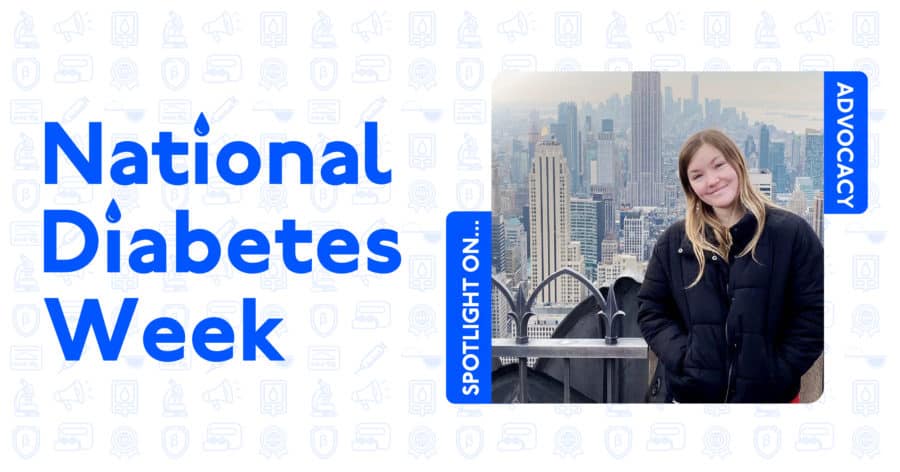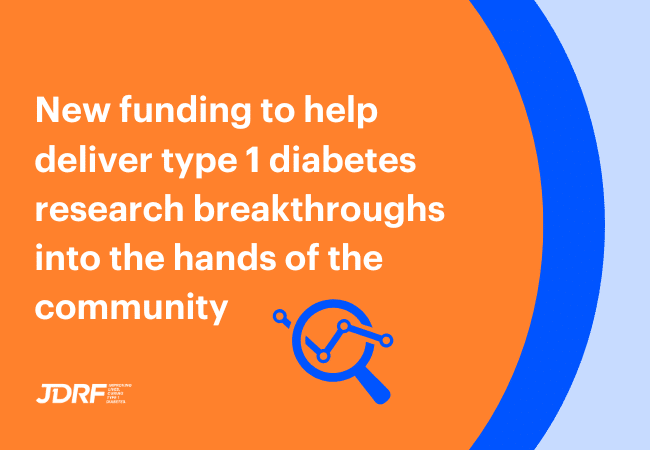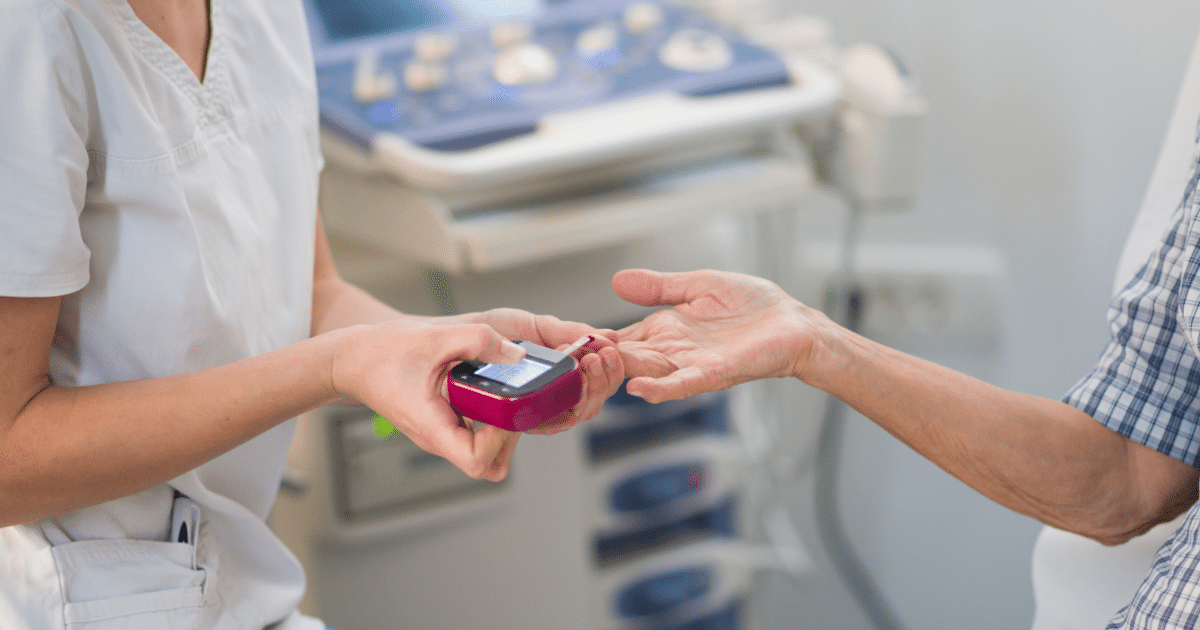Spotlight on advocate Lauryn Hope-Blyth

JDRF Australia is highlighting the stories of just some of the spectacular people in the T1D community and the unique experiences they’ve had while living with diabetes. This year, the focus is on highlighting the mental and emotional impact of T1D.
“How did I get ‘D’ nobody knows why.
It makes me so sad and even makes mum cry.
She hasn’t slept through the night for nearly 9 years.
She checks me so often for the lows that she fears.”
At only 9 years old, Lauryn Hope-Blyth wrote this poem to share her everyday struggles of living with type 1 diabetes (T1D), and her wish to find a cure for her horrible “D”.
It’s clear that even as a child, she was no stranger to the fear and anxiety people living with T1D and their carers face daily.
In fact, Lauryn was just a toddler when her T1D story began. Unable to articulate her symptoms, she was misdiagnosed with an ear infection twice. When her symptoms persisted after two rounds of antibiotics, her mum sought a second opinion from her aunty (an emergency nurse).
The rest is history. A whirlwind three-and-a-half-hour trip from their regional town to Perth, arrival in a coma-like state and a 5 day stay in ICU later, Lauryn was diagnosed with T1D.
When Lauryn’s mum Sue describes the spectrum of emotions on diagnosis, she talks about feeling terrified and grieving the life she thought her daughter would have.
After such a traumatic diagnosis, Sue had to shift her mindset from believing her child would have a perfectly healthy life to worrying for her future. Additionally, living in a regional town meant they had limited support systems available.
As Lauryn was so young, the responsibility for her T1D care also sat squarely on her parents’ shoulders for many years, contributing to them feeling overwhelmed.
A role model for T1D children
Having watched her parents face these challenges, Lauryn is determined to make her mark on the world by being a positive influence on children with T1D and supporting their parents in the process.
Alongside studying medicine at university, Lauryn runs a side business looking after children with T1D.
“I started my business because I think it’s incredibly important for parents to have a support system around them and have the confidence to leave the house knowing their child is in safe hands.” Lauryn says.
She says it’s particularly rewarding to babysit T1D children when they’re very young and their parents feel like they can’t leave them with any family or have a break. Once, she babysat a little girl who was diagnosed at a very young age like herself and her parents hadn’t been able to take a break for over three months.
Lauryn also knows how important it is for children with T1D to have someone to look up to.
“I know that as a child I loved having a T1D role model and to see that when I was struggling, I could get through it and achieve great things. I feel so humbled that I get to be that positive influence because it does get hard and children do feel lonely and isolated, especially when they start to notice they’re a bit different,” explains Lauryn.
Achieving great things
Even as she improves the lives of so many around her, Lauryn is also very open about the mental and emotional impacts of living with T1D.
She tells us of a time during her WACE when it looked like all her hard work might come crashing down when she encountered a sudden low during an exam.
“I remember staring at the page and trying to write the word ‘novel’ and I still couldn’t spell the word even after about seven tries! I thought I should go to the nurse and by the time I arrived I couldn’t see anything,” Lauryn explains.
Despite this scary experience, Lauryn ended up re-sitting the exam and getting into her chosen course at university.
“For once in my life I didn’t feel different. T1D is full of challenges but that also means you can feel so much accomplishment once you’ve overcome them and realise you’re stronger,” she says.
Now, Lauryn is JDRF Australia’s WA Lead Advocate, helping influence policy, ensuring new treatments reach the community and moving us closer to a world without T1D. She also hopes to specialise in paediatrics in the future to improve children’s lives and give them the chance to be happy and healthy.
Managing mental health
In celebration of National Diabetes Week, here are Lauryn’s top three tips for looking after your mental health in the face of diabetes distress and complications:
- It’s OK to get angry and be upset about T1D. Make sure you give yourself time to fully feel those emotions and recover from them as well.
- Know that diabetes can’t stop you from doing anything. You control it, it doesn’t control you so live your life without limitations!
- Talk about it. Make people aware of how you’re going and the things you’re feeling. There’s always someone there who can support you.
To learn more about type 1 diabetes and mental health this National Diabetes Week, check us out on Facebook or Instagram.
If you’d like to follow in Lauryn’s foot steps and become a JDRF Advocate, you can join our Advocacy Program here.




